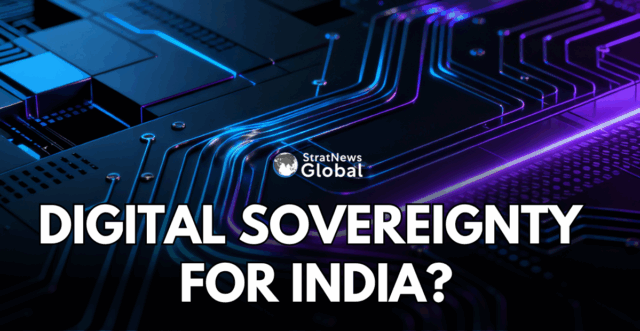As India debates the future of digital sovereignty, policymakers and experts face a pressing question: Can the country safeguard its digital infrastructure and user data in a world dominated by global technology giants and foreign powers?
With China’s model of strict state control and a self-reliant digital ecosystem serving as both a challenge and a point of reference, Indian leaders are confronting difficult choices—particularly as upcoming Free Trade Agreements (FTAs) could shape policies on data and economic security.
At a recent panel discussion in New Delhi, “Digital Sovereignty, FTAs and National Security”, participants examined China’s approach and its relevance for India. Ambassador Smita Purshottam, Chair of the Science, Indigenous Technology and Advanced Research Accelerator (SITARA), noted that 10% of China’s GDP comes from its digital economy. “China has created its own platforms and apps. Through this, they have built up capabilities because they have policies with preferential procurement to promote their own industry,” she said.
Dr. Sasmit Patra, a Member of Parliament, pointed out the self-contained nature of China’s ecosystem. “China has its own Facebook. So data migration doesn’t take place because their data is hosted and sustained within their own demography,” he said.
For India, however, replicating China’s model is neither feasible nor desirable. “India cannot have an ecosystem of a democracy and the approach of a one-party communist system because then we’ll be neither here nor there,” Dr. Patra observed. The distinction is crucial: China’s government controls everything from apps to infrastructure, while India’s digital space remains open, pluralistic, and largely dependent on international technology.
Still, India can adapt lessons from China without copying them wholesale. As Dr. Patra cautioned, the goal must be to control India’s own platforms while setting an example for free societies.
The idea of a dedicated Digital Sovereignty Law has been formally proposed in a letter to the Prime Minister by digital society researcher Parminder Jeet Singh, Orkash Labs CEO Ashish Sonal, Ambassador Smita Purushottam and others. The letter urges the government to move high-risk sectors containing critical data—such as DigiLocker, GeM, national highways data repositories, and other sensitive platforms—onto sovereign, indigenous Indian clouds.
The authors stress that this is an urgent need, especially as India negotiates FTAs. The broad consensus is that India’s approach must anchor itself in constitutional digital sovereignty, protect national security, and promote inclusive economic growth.





